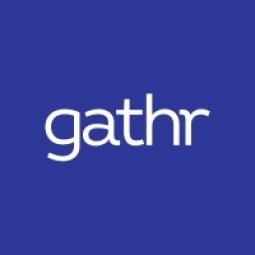Customer Company Size
Large Corporate
Product
- Impetus Analytics Module
- Event Store/Indexer Abstraction Layer
- Publish Module
Tech Stack
- Text Categorization Algorithm
- Matrix Decomposition
Implementation Scale
- Enterprise-wide Deployment
Impact Metrics
- Productivity Improvements
- Digital Expertise
Technology Category
- Analytics & Modeling - Big Data Analytics
- Analytics & Modeling - Natural Language Processing (NLP)
Applicable Industries
- Telecommunications
Applicable Functions
- Business Operation
Services
- Data Science Services
About The Customer
The customer in this case study is a major telecom company that provides nationwide telecom services. They were in need of a system that could perform real-time, multi-lingual classification and sentiment analysis of text data. The company deals with a high volume of data of varied types such as weblogs, email, chat, and files. They required a solution that could ingest and parse this data, apply real-time multi-lingual classification and sentiment analysis with very high accuracy, store metadata and raw binary data for querying, and meet a Query SLA of 5s on cold data.
The Challenge
The client, a major telecom company providing nationwide telecom services, was in need of a system that could perform real-time, multi-lingual classification and sentiment analysis of text data. They were looking for a solution that allows storing, indexing, and querying PetaBytes (PBs) of data with a very high throughput. The critical requirements included the ability to ingest and parse a high volume of data [250M (15 TB) records/day] of varied types such as weblogs, email, chat, and files. They also needed to apply real-time multi-lingual classification and sentiment analysis with very high accuracy (four nines), store metadata and raw binary data for querying, and meet a Query SLA of 5s on cold data.
The Solution
Impetus provided a solution that consisted of three modules. The Analytics Module was responsible for performing text categorization and sentiment analysis. It implemented a matrix decomposition-based text-classification algorithm. The incoming test document had to pass through a series of pre-processing and numerical computations. Impetus designed the classifier to achieve very low latency. The Event Store/Indexer Abstraction Layer was responsible for storing and indexing the information based on the configuration. The Publish Module was responsible for publishing the analytical result or event data to the external system.
Operational Impact
Quantitative Benefit

Case Study missing?
Start adding your own!
Register with your work email and create a new case study profile for your business.
Related Case Studies.

Case Study
Vodafone Hosted On AWS
Vodafone found that traffic for the applications peak during the four-month period when the international cricket season is at its height in Australia. During the 2011/2012 cricket season, 700,000 consumers downloaded the Cricket Live Australia application. Vodafone needed to be able to meet customer demand, but didn’t want to invest in additional resources that would be underutilized during cricket’s off-season.

Case Study
SKT, Construction of Smart Office Environment
SK T-Tower is the headquarters of SK Telecom. Inside the building, different types of mobile devices, such as laptops, smartphones and tablets, are in use, and with the increase in WLAN traffic and the use of quality multimedia data, the volume of wireless data sees an explosive growth. Users want limitless Internet access in various places in addition to designated areas.











